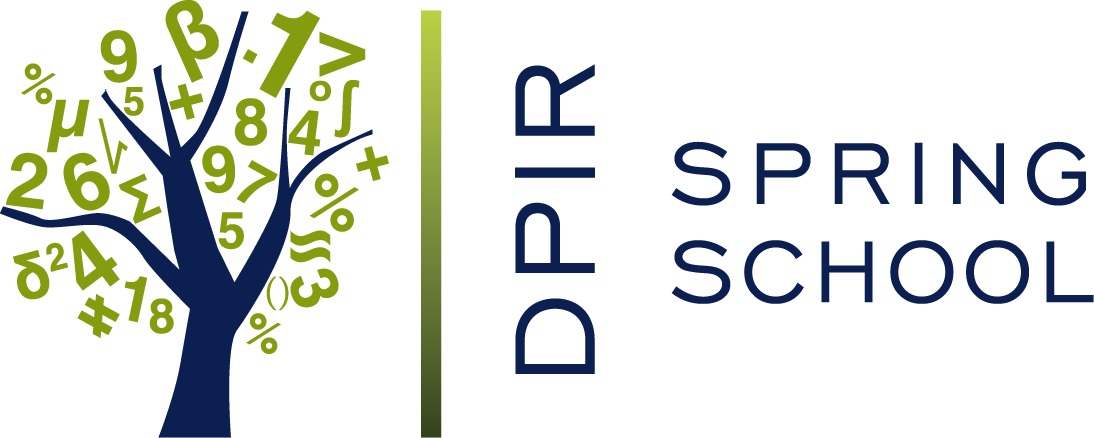Morning Courses (09:30 - 12:30)
Morning Courses (09:30 - 12:30)
-
Qualitative Methods: Interviews and Fieldwork
Tutor: Marnie Howlett (Oxford)
This course introduces students to the concepts, techniques, and data used with and collected using qualitative research methods. It covers themes like process tracing, research ethics and reflexivity, and the presentation and evaluation of qualitative research projects. We will address and consider various aspects of qualitative research design, including research questions, case selection and small-N comparisons.
We will introduce several data collection techniques for qualitative research: interviews, focus groups, ethnography/participant observation, textual/document analysis, and archival research.
The aim of the course is to equip students with the knowledge, tools, practical skills, and confidence to independently conduct qualitative research.
-
Machine Learning
Tutor: Tom Robinson (LSE)
Computational techniques broadly referred to as "machine learning” (ML) are attracting increasing attention in the social sciences. This course will introduce students to the fundamental theories and concepts used across ML techniques (e.g maximum likelihood estimation, classification, overfitting, and cross-validation) and how to apply various popular ML techniques (e.g. LASSO, random forests, bayesian additive regression trees, and neural networks).
This course will also pay particular attention to inferential problems regarding how best to use ML methods in social science contexts and discuss practical issues (e.g. computational power and parallelisation). Students on this course are required to be familiar with probability and statistics (OLS, hypothesis testing, logistic regression) and to have basic knowledge of the R programming language.
-
Causal Inference 1: Social Science Experiments
Tutor: Noah Bacine (Oxford)
The course covers a range of topics, including randomization, experimental manipulation, and a focused discussion of internal and external validity, ethics and preregistration. Students will be introduced to various types of experiments, such as field experiments, survey experiments (including conjoint analysis), and laboratory experiments. They will be encouraged to discuss their own research designs, while the accompanying lab sessions will provide hands-on experience with R and the practical design of experiments.
-
Text Analysis
Tutor: Michal Ovádek (UCL)
The quantitative analysis of text data has fuelled the rise of artificial intelligence technologies. The confluence of computational power and data availability means that opportunities to analytically exploit textual resources are now ubiquitous in the social sciences. This course provides a hands-on introduction to the world of computational text analysis. It aims to equip students with the skills needed to begin using text data at scale in their own research. It is also suitable as a stepping stone to more advanced courses on large language models and artificial intelligence. Students will learn to process textual input in various formats, manipulate text using regular expressions, represent it numerically in sparse and dense (embedding) forms, and apply key principles in machine learning to classify texts. The course will be taught in R and require participants to code along throughout.
Afternoon Courses (14:00 - 17:00)
Afternoon Courses (14:00 - 17:00)
-
Data Analysis for the Social Sciences
Tutor: Spyros Kosmidis (Oxford)
This is an introductory course on data analysis for social scientists and is designed for students with little or no knowledge of quantitative methods. The course will cover a wide range of research designs (e.g. survey, cross- national, experimental etc) and students will learn the basics of data management/recoding, data visualization, statistical modeling and interpretation. The course will be divided into theory lectures and hands-on lab sessions using RStudio.
The course is well-suited for students seeking an introduction to quantitative methods or those looking to refresh their knowledge in this field. Upon completion, students will be in a position to analyse their own data and confidently engage with academic work on quantitative social science.
-
Large Language Models
Tutor: Maksim Zubok (Oxford)
The course will introduce fundamentals of language models covering language modelling objective, model architecture, and key life stages of a language model: pre-training, post-training, and inference. It will explore popular applications in social science research like text annotation, summarization, information extraction, and modelling of human behavior and public opinion (synthetic sampling). The course will also introduce model limitations and ways to address them, focusing on social biases and output reliability.
-
Advanced Qualitative Methods
Tutor: Kalina Zhekova (University College London)
This course equips you with the in-depth knowledge and skills required to critically assess and apply core approaches in qualitative research and their logics of data analysis. It focuses on process tracing and the investigation of causal mechanisms in comparative studies; narrative analysis and the role of strategic communication; poststructuralist discourse analysis and the ways in which meaning-making shapes social practices. By taking this course, you will:• Develop knowledge of the logic of inference in process tracing, build skills in deriving and tracing causal mechanisms and their empirical implications in comparative analysis;• Understand the characteristics and nuances of discourse analysis, learn how to investigate meaning-making practices and the way they frame social relations;• Build skills and knowledge in strategic narrative analysis by exploring the role of communication and its reception;• Evaluate research designs that incorporate process tracing, discourse analysis, or narrative analysis, and critically assess scholarship employing these approaches. -
Causal Inference 2: Design-Based Approaches
Tutor: Nelson Ruiz (University of Essex)
This course introduces causal inference in the social sciences. The objective is to learn how to make and evaluate causal claims. The course is intended as an overview of the different methods, ranging from experimental designs to quasi-experimental designs, with a more extensive focus on quasi-experimental designs. Students will develop the skills to critique methods used in recent academic work and begin to apply these methods in their own research. The course will start by introducing causality in social sciences, potential outcomes framework, experiments, selection on observables/matching, difference in differences, and regression discontinuity design. Applicants of the different methods will be taught along the theory behind the different causal inference methodologies.



